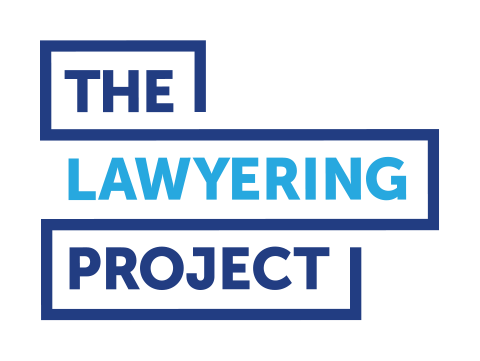New Lawsuit Challenges Louisiana Law Classifying Mifepristone and Misoprostol as Controlled Substances
Louisianans are suing to ensure access to these safe, effective medications used to treat postpartum hemorrhage, miscarriages, and other conditions
10.31.24–(PRESS RELEASE) Moments ago, birth workers and other medical professionals, advocates, and a pregnant person filed a state challenge to a Louisiana law (Act 246) that adds mifepristone and misoprostol to Louisiana’s Controlled Dangerous Substances (“CDS”) schedules, subjecting medical professionals and their patients to a highly regulated legal scheme that will delay access to potentially lifesaving medications. In addition to being a safe and effective way to end a pregnancy, mifepristone and misoprostol are also used to treat a wide variety of conditions — both related and unrelated to pregnancy — including postpartum hemorrhage, miscarriage management, Cushing’s Syndrome, uterine fibroids, ovarian cancer, and gastric ulcers.
The threat this law poses to people experiencing obstetric emergencies is particularly great. Patients experiencing postpartum hemorrhage lose as much blood as quickly as patients experiencing a gunshot wound.
“Access to safe, timely, and effective care is essential to reducing maternal mortality, especially for Black women who face higher rates of life-threatening complications,” said Plaintiff Birthmark member-owner. Birthmark is a doula-owned cooperative in Louisiana that is dedicated to supporting, informing, and advocating for pregnant and parenting people and their families in New Orleans. “Restricting immediate access to essential medications like misoprostol compromises our ability to provide urgent, lifesaving care, putting more lives at risk in a system already strained by severe health inequities. Misoprostol plays a crucial role in managing life-threatening postpartum hemorrhage, which is one of the leading causes of maternal mortality. Restricting access to this essential medication not only endangers lives but also deepens the health disparities that disproportionately affect Black mothers and birthing people in our state. It is critical that hospitals prioritize timely access to all emergency resources to help reduce maternal deaths and support families.”
Instead of addressing these concerns, politicians continue to push laws that only create more problems for patients seeking healthcare and the birth workers and other medical professionals who care for them.
“We will not sit back while anti-abortion lawmakers force people in our state to carry pregnancies against their will and then make those pregnancies more dangerous,” said Michelle Erenberg, Executive Director at Lift Louisiana. Lift Louisiana is one of the organizations representing the plaintiffs.
The lawsuit also challenges the way Louisiana passed the law. Anti-abortion politicians failed to follow Louisiana’s constitutional process for passing bills, and that the law will increase the tax burden of Louisiana taxpayers like Nancy Davis and Kaitlyn Joshua.
Davis made headlines when she was denied medical care after experiencing a fatal fetal anomaly in her pregnancy. She was forced to travel nearly 1,500 miles from her home in Baton Rouge, Louisiana, with her fiancé to access the healthcare she and her family deserved. Since then, Davis has been a vocal advocate, transforming her pain into action for others in her community being deprived of medically appropriate care.
“This lawsuit is a reminder to lawmakers everywhere that putting personal agendas above the safety and rights of patients is both dangerous and unacceptable,” said Davis. “These medications are a crucial part of healthcare and restricting them is not only discriminatory but reckless.”
Joshua also has been publicly sharing her family’s experience after she was denied prenatal care and treatment for a miscarriage in Baton Rouge, Louisiana. After being turned away from two hospitals it became clear that women like Joshua were being denied basic healthcare out of fear of state abortion laws.
“Louisiana’s abortion ban has created chaos and confusion around accessing life-saving medical care, forcing doctors to hesitate, and in some instances refuse, to provide needed medical treatment during miscarriages. It happened to me,” Joshua said. “Now lawmakers have passed yet another law making it harder to get care during a miscarriage, and they did it without following the requirements of the State’s constitution.”
Louisiana is also commonly known as the “incarceration capital of the world,” historically incarcerating more of its population than anywhere else and disproportionately incarcerating Black people.
“Classifying mifepristone and misoprostol — both of which are safe and have no risk of abuse or dependency — as dangerous substances contributes to the criminalization of already-marginalized communities,” said Jamila Johnson, Senior Counsel at Lawyering Project, another nonprofit representing the plaintiffs in the case. “Act 246 puts mifepristone and misoprostol in the center of a deeply dysfunctional drug enforcement system that has greatly contributed to that incarceration rate.”
While Act 246 does not criminalize pregnant people who have mifepristone and misoprostol for their own use, abortion bans and laws like this one create an environment of suspicion and surveillance around pregnant people.
Today’s challenge was filed by Lift Louisiana, the Lawyering Project, and Schonekas, Evans, McGoey & McEachin, LLC on behalf of Birthmark Doula Collective and Nancy Davis and Kaitlyn Joshua, along with Shreveport pharmacist Kaylee Self, who is currently pregnant, and New Orleans physician Dr. Emily Holt.
###

